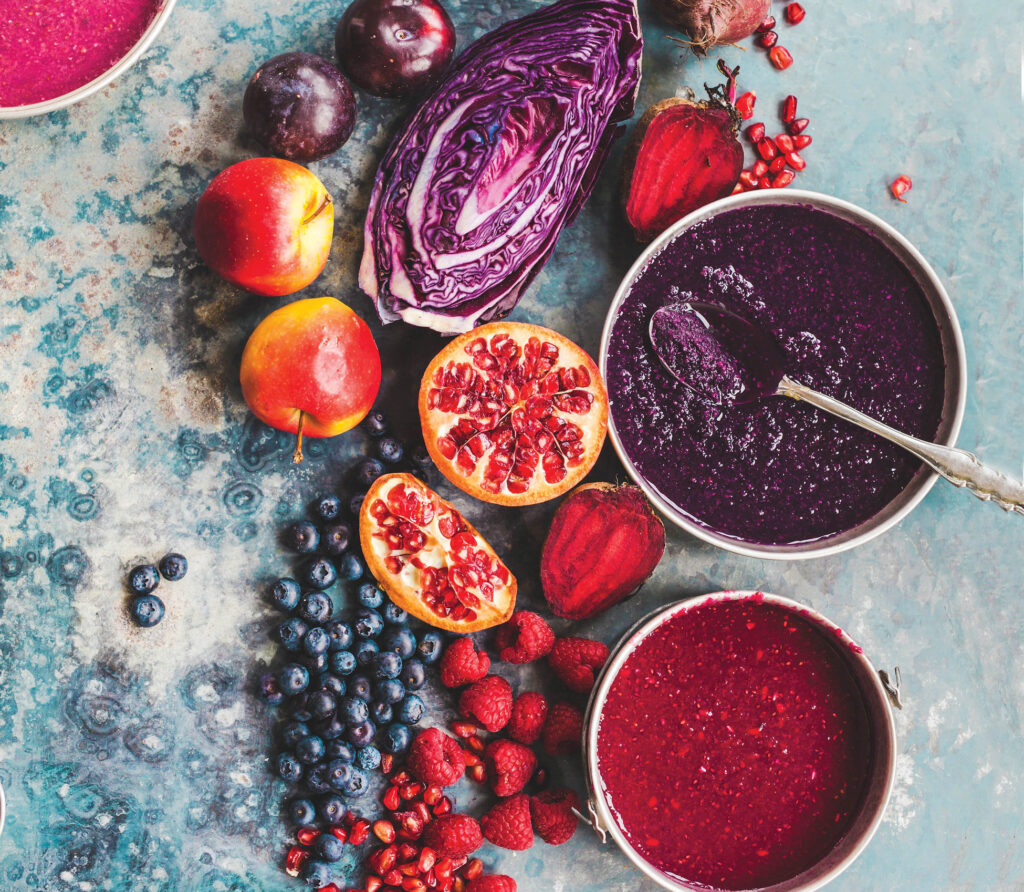Advertisement
Going Vegan
It’s easier than you think

What is veganism? Learn the facts about what the health and ethical benefits are and what nutritional deficiencies to watch for when going vegan.
Advertisement
Getting started
Diets are started for many reasons. Ethics, disease prevention, weight loss, religious beliefs, performance enhancement, and personal choice can all be important reasons to choose to adopt a vegan lifestyle.
Whatever the reason, it’s crucial to be prepared and educated when adopting a new diet. It’s the specifics of the diet that matter, as they provide us with the information to properly implement the diet and ensure a balanced intake of adequate nutrients. For me, as a naturopathic physician, it’s not so much about which diet one chooses but rather how one executes it that is most important. Like all new diets, going vegan requires diligence, imagination, and personal self-control.
There is a common misconception that veganism is particularly challenging to implement. I think it’s no different than starting any new diet.
Advertisement
Why go vegan?
There are many reasons someone would consider going vegan. For example, there are the ethical reasons regarding animal rights, as well as a rising amount of research indicating it has potential health benefits for reducing risk of cardiovascular disease, type 2 diabetes, and some cancers.
Another key motivation for vegans can be the environmental impact that meat and animal food production incurs on the world. Avoiding meat and animal products shifts consumption away from animal growth hormones, excessive antibiotic use, and pollution toward a more ecologically responsible and sustainable world.
Advertisement
What does it mean to be vegan?
The Vegan Society defines veganism as “a plant-based diet avoiding all animal foods such as meat (including fish, shellfish, and insects), dairy, eggs, and honey—as well as products like leather and any tested on animals.” This leaves a lot of foods left to be consumed in a variety of different ways! Think about it—you can still have all fruits, vegetables, nuts, seeds, grains, beans, and pulses (which include dried peas, lentils, and chickpeas).
In addition to the dietary choices associated with being vegan is the ethical belief regarding animal rights and welfare. This entails no purchasing of animal products or products that are tested on animals. Some examples include leather purses, shoes, and clothing. The vegan lifestyle also extends to skin, hair, and other personal care products.
Are there any nutrient deficiencies to be concerned about?
The short answer to this is “yes.” However, this can be the case with any diet if it is not properly executed.
Some common nutrients of specific concern in a vegan diet, which are supported by research, include
- protein
- vitamin B12
- vitamin D
- omega-3 fatty acids
- iron
- zinc
These deficiencies generally arise because the food groups consumed by vegans do not contain some nutrients in high enough quantities. Simply incorporating fortified foods or specific targeted supplements can eliminate the concern for these deficiencies. In addition, standard blood tests for iron levels, vitamin B12, and vitamin D can be run to ensure that adequate levels are being reached.
Nevertheless, due to the primary foods consumed, the vegan diet inherently has a high level of most macronutrients when done consciously. Macronutrients include food categories such as fats (including coconut oil), proteins (which are plentiful in foods such as nuts, seeds, and beans), and carbohydrates (which are found in grains and vegetables).
Advertisement
The big picture
The vegan diet is a lifestyle. It promotes healthy animal welfare and more sustainable food production practices. As with any diet, I highly recommend thorough personal research or seeking qualified, professional health care advice to help guide choices and prevent deficiencies.
You’d be surprised!
Q: Vegans don’t eat dairy, so does that mean I will not get enough calcium?
A: Dairy-sourced calcium is not the only good source of calcium. Vegans can eat a lot of dark green leafy vegetables such as kale, spinach, Brussels sprouts, and many more—all of which are very rich in absorbable calcium.
Q: Does being vegan mean you will be skinny?
A: Not necessarily. Diet type does not always correlate to weight. However, if a vegan diet is done properly, the diet may have a positive impact on weight reduction.
Q: Can you eat gummy bears and marshmallows?
A: Most gummy bears and marshmallows are made of gelatin, which is an animal product. However, there are some companies that can make gummy bears and marshmallows using vegan ingredients. Don’t worry; they taste delicious!
Ask an expert: Vegan pregnancy?
Pamela Smith, ND, focuses her practice on women in pregnancy and encounters many women deciding to stick to their vegan diet through pregnancy.
As she explains, “Yes, there should be an emphasis on ensuring adequate nutrients such as iron, protein, and essential fatty acids, specifically DHA for brain development.” But she cautions, “The danger lies in becoming an extremist or surviving solely on just carbohydrates.” Smith believes that “it takes a tremendous amount of resources to create a baby—there are concerns when these demands are not met solely through diet.”
Smith advises her patients about the appropriate supplementation during a vegan pregnancy to prevent deficiencies for both mom and baby.





